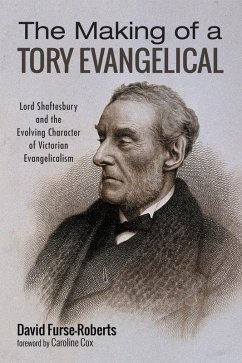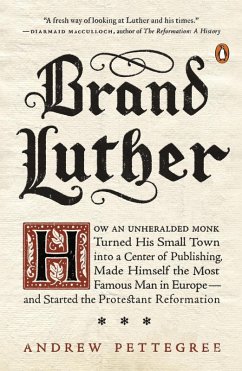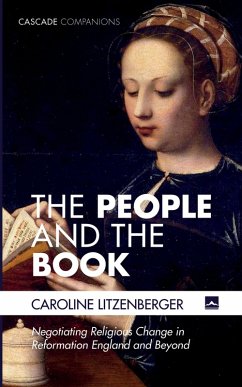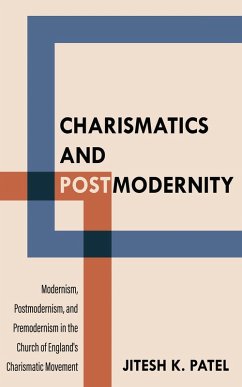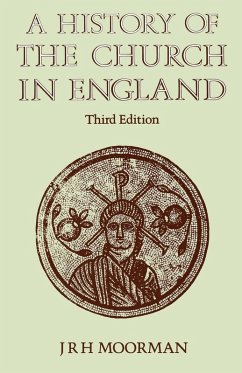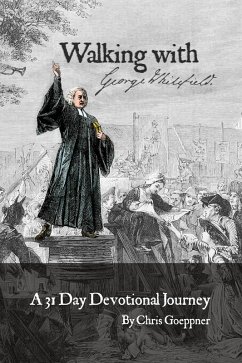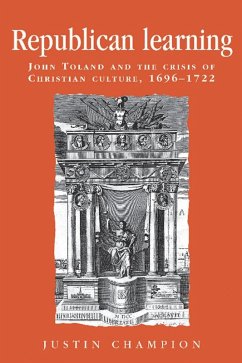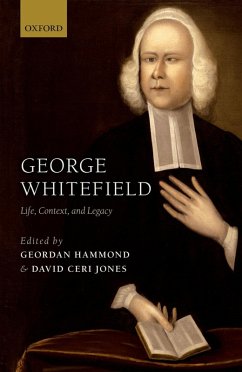
Inventing George Whitefield (eBook, ePUB)
Race, Revivalism, and the Making of a Religious Icon

PAYBACK Punkte
8 °P sammeln!
Evangelicals and scholars of religious history have long recognized George Whitefield (1714-1770) as a founding father of American evangelicalism. But Jessica M. Parr argues he was much more than that. He was an enormously influential figure in Anglo-American religious culture, and his expansive missionary career can be understood in multiple ways. Whitefield began as an Anglican clergyman. Many in the Church of England perceived him as a radical. In the American South, Whitefield struggled to reconcile his disdain for the planter class with his belief that slavery was an economic necessity. W...
Evangelicals and scholars of religious history have long recognized George Whitefield (1714-1770) as a founding father of American evangelicalism. But Jessica M. Parr argues he was much more than that. He was an enormously influential figure in Anglo-American religious culture, and his expansive missionary career can be understood in multiple ways. Whitefield began as an Anglican clergyman. Many in the Church of England perceived him as a radical. In the American South, Whitefield struggled to reconcile his disdain for the planter class with his belief that slavery was an economic necessity. Whitefield was drawn to an idealized Puritan past that was all but gone by the time of his first visit to New England in 1740.
Parr draws from Whitefield's writing and sermons and from newspapers, pamphlets, and other sources to understand Whitefield's career and times. She offers new insights into revivalism, print culture, transatlantic cultural influences, and the relationship between religious thought and slavery. Whitefield became a religious icon shaped in the complexities of revivalism, the contest over religious toleration, and the conflicting role of Christianity for enslaved people. Proslavery Christians used Christianity as a form of social control for slaves, whereas evangelical Christianity's emphasis on "freedom in the eyes of God" suggested a path to political freedom. Parr reveals how Whitefield's death marked the start of a complex legacy that in many ways rendered him more powerful and influential after his death than during his long career.
Parr draws from Whitefield's writing and sermons and from newspapers, pamphlets, and other sources to understand Whitefield's career and times. She offers new insights into revivalism, print culture, transatlantic cultural influences, and the relationship between religious thought and slavery. Whitefield became a religious icon shaped in the complexities of revivalism, the contest over religious toleration, and the conflicting role of Christianity for enslaved people. Proslavery Christians used Christianity as a form of social control for slaves, whereas evangelical Christianity's emphasis on "freedom in the eyes of God" suggested a path to political freedom. Parr reveals how Whitefield's death marked the start of a complex legacy that in many ways rendered him more powerful and influential after his death than during his long career.
Dieser Download kann aus rechtlichen Gründen nur mit Rechnungsadresse in A, D ausgeliefert werden.




